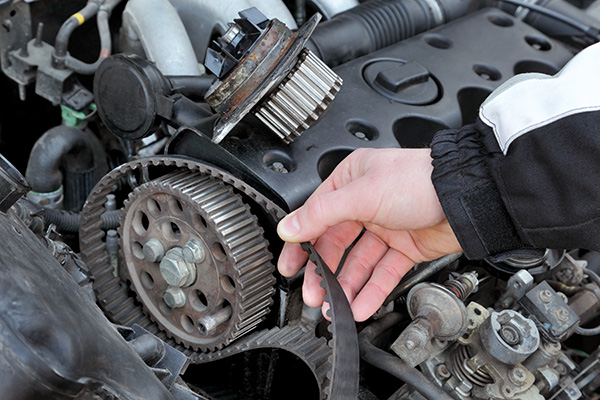
Timing chain tensioner issues have become a well-known concern for many Audi owners, especially in models equipped with turbocharged engines. If you drive an Audi and want to avoid unexpected engine trouble, understanding how to prevent timing chain tensioner failure can save you from a costly repair bill and keep your engine running.
Why the Timing Chain Tensioner Is So Important
The timing chain synchronizes the rotation of the crankshaft and camshaft, ensuring that your engine's valves open and close at precisely the right times. The tensioner keeps that chain tight and correctly positioned. If the tensioner begins to fail, the chain can loosen or skip a tooth, which can lead to poor engine performance, misfires, or in the worst-case scenario, catastrophic engine damage.
What Causes the Tensioner to Fail
Audi timing chain tensioner failures are often associated with worn hydraulic components or manufacturing defects in older models. As these parts degrade, oil pressure within the tensioner may drop, causing the chain to lose its proper tension. Over time, this leads to slack, noise, and eventually engine timing issues.
Symptoms You Shouldn’t Ignore
If you hear a rattling noise on cold starts, especially near the back of the engine, it could be an early sign that the tensioner is wearing out. Other symptoms include the check engine light turning on, rough idling, or delayed acceleration. These signs might appear subtle at first, but usually worsen quickly.
Preventive Steps Audi Owners Can Take
Prevention begins with regular maintenance and attention to oil changes. Because the tensioner relies on proper oil pressure, using the correct oil grade and changing it at the recommended interval is critical. Always use high-quality synthetic oil and an OEM-quality filter. Skipping oil changes or using the wrong products can contribute to premature tensioner wear.
It also helps to listen to your engine. If something sounds off, have it checked sooner rather than later. A mechanic familiar with Audis will be able to spot early signs and determine whether further diagnostics are needed. For some owners, upgrading to an improved aftermarket timing chain tensioner design may be a smart investment if recommended by a trusted technician.
When to Replace the Timing Chain Tensioner
While some tensioners can last over 100,000 miles, others fail much earlier. Audi models from the early 2010s are particularly known for premature tensioner problems, which can occur as early as 70,000 miles. If you own an older Audi or one with a history of timing chain issues, it may be wise to have the system inspected around 60,000 miles as a precaution.
Replacement can be labor-intensive because it often requires partial disassembly of the engine. However, catching the issue early prevents more extensive engine damage and helps your Audi remain reliable for years to come.
Protect Your Audi With Expert Service at Bimmer Motor Specialists
Audi ownership should be about performance and confidence, not surprise repairs. If you suspect timing chain issues or want to take preventive steps, the team at Bimmer Motor Specialists in Coppell, TX, is here to help. With advanced diagnostics and deep experience working on European vehicles, we can help keep your engine running smoothly and prevent timing chain tensioner failure before it happens. Schedule an inspection today and drive with peace of mind.